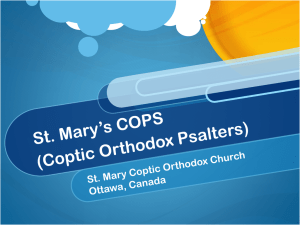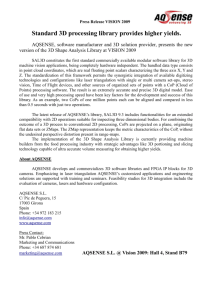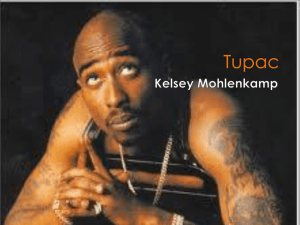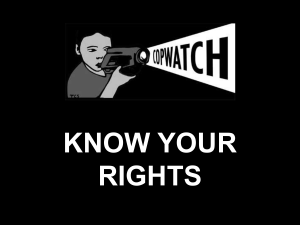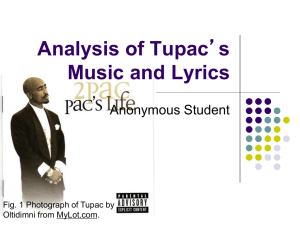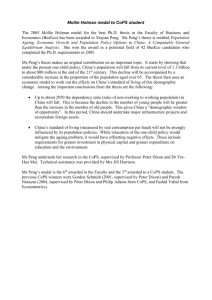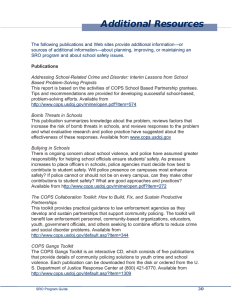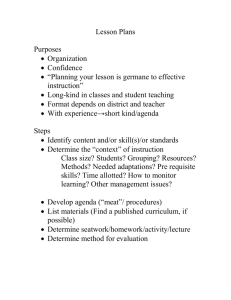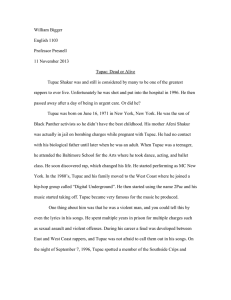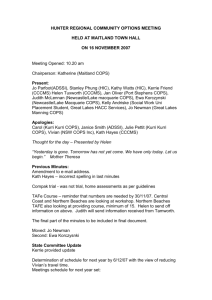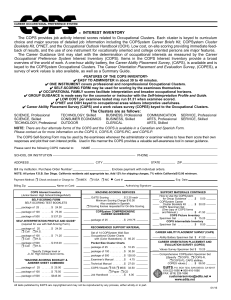A Untold Story
advertisement
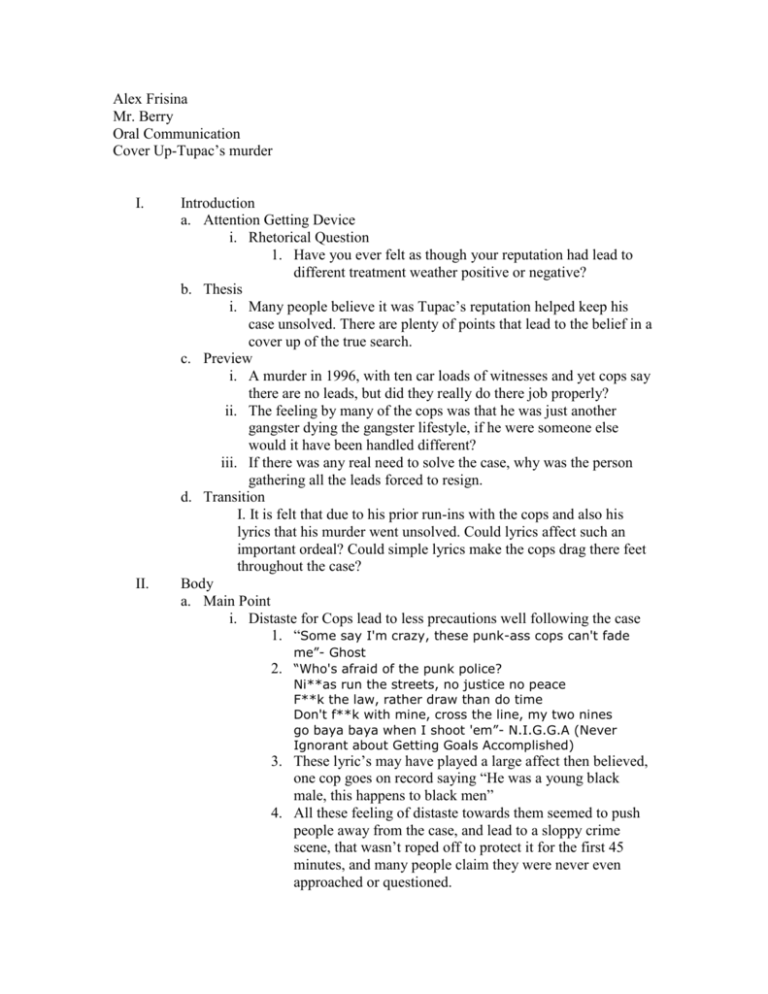
Alex Frisina Mr. Berry Oral Communication Cover Up-Tupac’s murder I. II. Introduction a. Attention Getting Device i. Rhetorical Question 1. Have you ever felt as though your reputation had lead to different treatment weather positive or negative? b. Thesis i. Many people believe it was Tupac’s reputation helped keep his case unsolved. There are plenty of points that lead to the belief in a cover up of the true search. c. Preview i. A murder in 1996, with ten car loads of witnesses and yet cops say there are no leads, but did they really do there job properly? ii. The feeling by many of the cops was that he was just another gangster dying the gangster lifestyle, if he were someone else would it have been handled different? iii. If there was any real need to solve the case, why was the person gathering all the leads forced to resign. d. Transition I. It is felt that due to his prior run-ins with the cops and also his lyrics that his murder went unsolved. Could lyrics affect such an important ordeal? Could simple lyrics make the cops drag there feet throughout the case? Body a. Main Point i. Distaste for Cops lead to less precautions well following the case 1. “Some say I'm crazy, these punk-ass cops can't fade 2. me”- Ghost “Who's afraid of the punk police? Ni**as run the streets, no justice no peace F**k the law, rather draw than do time Don't f**k with mine, cross the line, my two nines go baya baya when I shoot 'em”- N.I.G.G.A (Never Ignorant about Getting Goals Accomplished) 3. These lyric’s may have played a large affect then believed, one cop goes on record saying “He was a young black male, this happens to black men” 4. All these feeling of distaste towards them seemed to push people away from the case, and lead to a sloppy crime scene, that wasn’t roped off to protect it for the first 45 minutes, and many people claim they were never even approached or questioned. III. b. Transition i. Many cops say “He (tupac) was just a glorified gang member that died living the “thug life” he had tattooed on his stomach” c. Main Point i. Unreliable witnesses #1 1. The head of death row records (closely recognized with Tupac) 2. Goes on record saying “If I knew who killed Tupac, I wouldn’t tell authorities because I am not paid to solve homicides or to be a snitch” 3. Later it was revealed that he lied about having a bullet in his head from that night. d. Transition i. There was yet another witness that repeatedly changed his stories over the trial, helping to mislead the police more. e. Main Point i. Unreliable witness #2 1. Orlando Anderson (well known crip) 2. admitted later on to being dishonest under oath due to the fear of violence (death threats) 3. on many accounts his story changed, and contradicted his previous testimony Conclusion a. As a whole it is easy to see why the cops had such a difficult time in pin pointing a person for this crime, when they received no help from any outside sources. b. There are many factors to why people didn’t come forward, weather it be they were scared for there life or simply scared of getting themselves into more trouble then they were already in. The people in whom Tupac surrounded himself with may have also played a large role in the inability to solve this crime. c. This unsolved crime has nothing to do with race or a conspiracy, nor does it deal with feelings towards the person killed. This deals with the people he had surrounded himself with. The street life that Tupac's lyrics had so commonly spoken of became evident throughout this case when police had no help in trying to obtain information.
